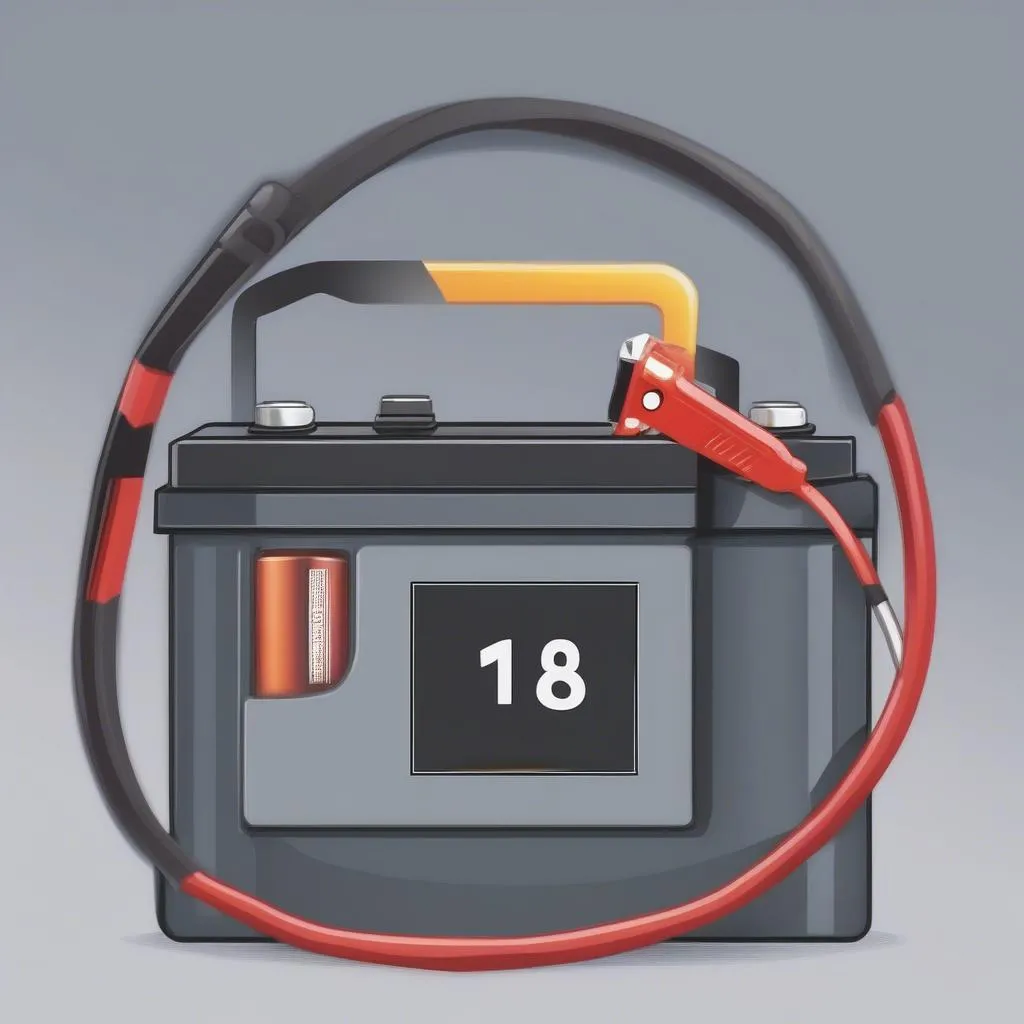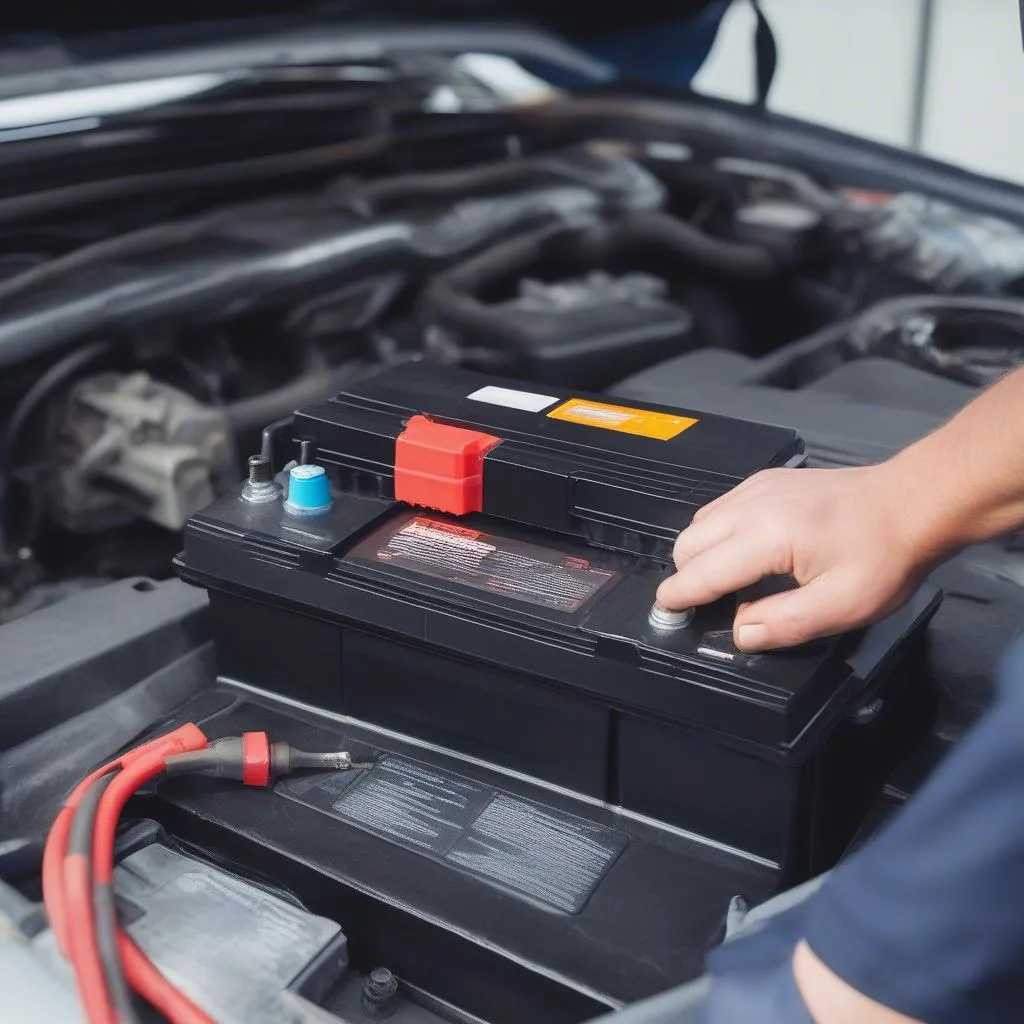Imagine this: You turn the key in your car, but instead of the familiar roar of the engine, you hear a weak click. You check your car’s dashboard and see a battery voltage reading of 11.9 volts. What’s going on?
Understanding Car Battery Voltage
A car battery’s voltage indicates its health. A fully charged battery should read around 12.6 volts. A reading of 11.9 volts suggests that your battery is somewhat discharged. But it’s not as simple as just topping off the battery.
Technical Perspective
A healthy car battery should maintain a voltage between 12.4 and 12.6 volts when fully charged. A voltage reading of 11.9 volts indicates a lower-than-ideal charge. This can result from several factors, including:
- Age: Like all batteries, car batteries have a limited lifespan. As batteries age, their internal resistance increases, making it harder to hold a charge.
- Cold weather: Cold temperatures significantly impact battery performance. The chemical reactions within the battery slow down in the cold, leading to lower voltage readings.
- Excessive electrical loads: Using accessories like headlights, air conditioning, or a heated rear window with a weak battery can deplete the battery faster and result in lower voltage readings.
- Corrosion: Corrosion on the battery terminals can lead to a poor connection and prevent the battery from charging fully.
- Parasitic draw: Even when the car is off, some components like the clock, alarm, and radio can still drain the battery slightly. Over time, a parasitic draw can weaken the battery.
What Does 11.9 Volts Mean For Your Car?
A 11.9-volt reading on your car battery doesn’t necessarily mean you need a new one immediately. However, it’s a sign that something is amiss and requires attention.
Starting Trouble
The most common issue with a 11.9-volt battery is starting trouble. A car’s starter motor requires a significant amount of power to crank the engine. A weakened battery may not be able to provide the necessary power for the starter to work properly.
 Car battery with 11.9 volts low charge
Car battery with 11.9 volts low charge
What to Do with a 11.9-Volt Battery
So, you’ve got a 11.9-volt battery reading. Here’s a plan of action:
Check for Corrosion
Begin by inspecting the battery terminals for corrosion. Green or white buildup on the terminals indicates corrosion. Clean the terminals with a wire brush or baking soda solution.
Jump Start Your Car
If you’re experiencing starting problems, try jump-starting your car. A jump start will provide a temporary boost of power to the battery, allowing you to start the engine. However, this is only a temporary solution.
Recharge Your Battery
After jump-starting your car, drive it for at least 30 minutes to allow the alternator to recharge the battery. If the battery is still reading below 12.4 volts, it might be time for a replacement.
Consider a Battery Replacement
If your battery is old, shows signs of corrosion, or frequently discharges, it’s best to replace it. Consult a trusted mechanic or auto parts store for recommendations.
 Car battery replacement
Car battery replacement
Common Questions about Car Battery Voltage
- What voltage should a car battery have when fully charged? A fully charged car battery should read between 12.4 and 12.6 volts.
- Can I drive with a 11.9-volt battery? It’s not recommended to drive with a battery that reads 11.9 volts for an extended period. It could eventually die completely, leaving you stranded.
- Is it dangerous to jump-start a car with a low battery? It’s not inherently dangerous, but proper procedures should be followed to avoid sparks or electrical shocks.
Keep Your Battery Healthy
By following these tips, you can keep your car battery healthy and avoid starting problems:
- Regularly check your battery terminals for corrosion.
- Avoid leaving your car lights or other accessories on for extended periods when the engine is off.
- Have your battery tested regularly by a mechanic.
- Replace your battery when it’s nearing the end of its lifespan.
For expert assistance and guidance on car battery diagnostics and maintenance, contact us today! We have a team of certified technicians available 24/7 to answer your questions and help you get back on the road.
